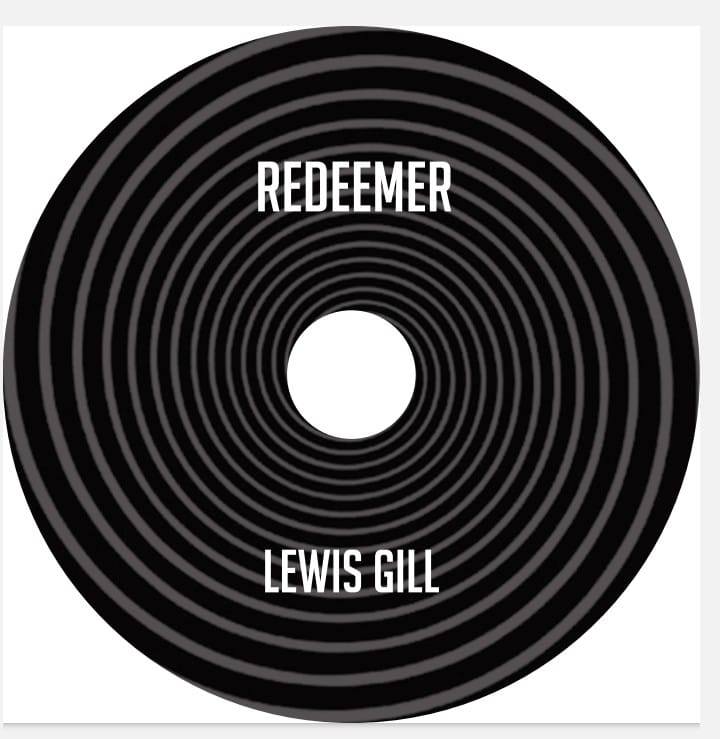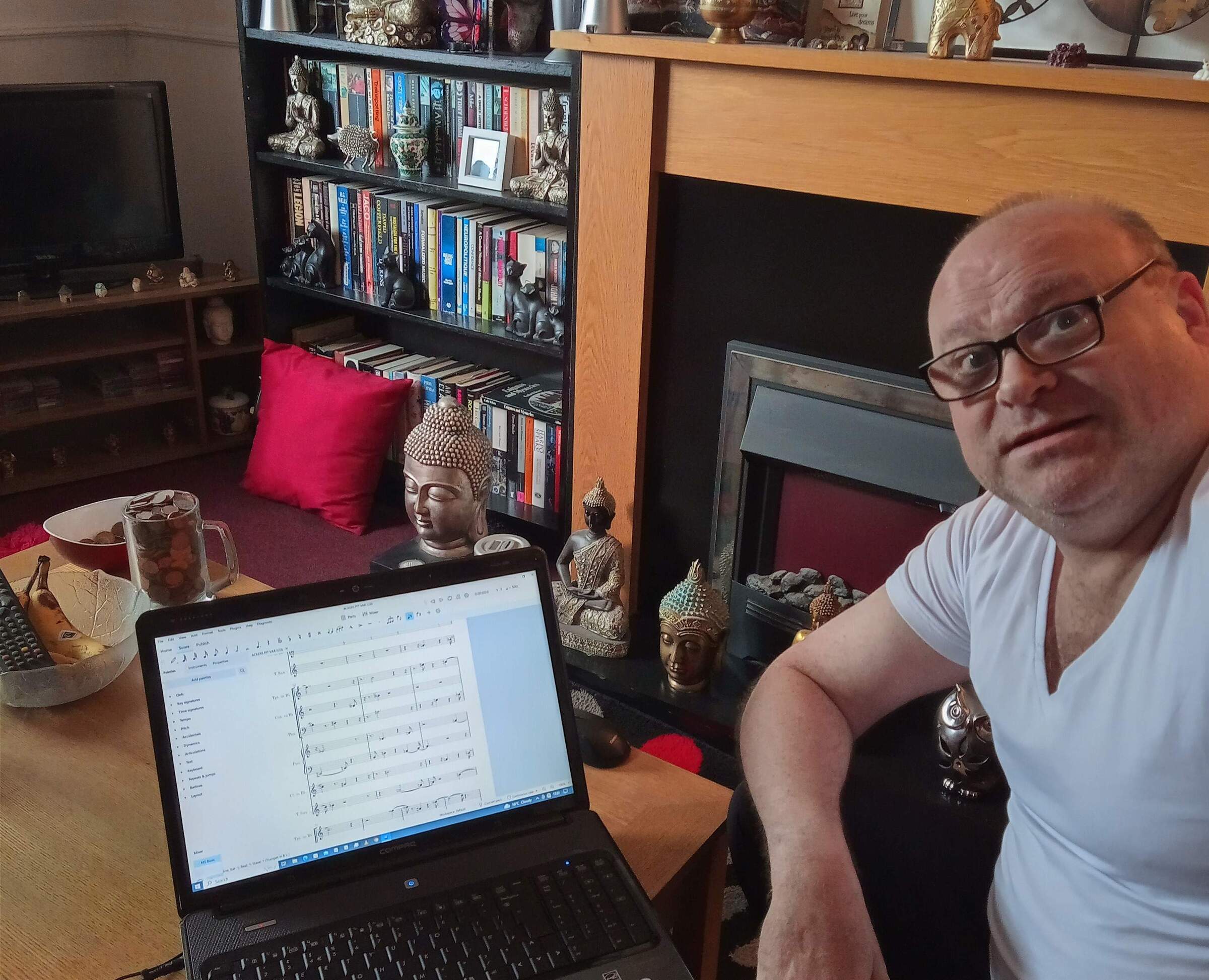Lewis Gill | Interview | New Album, ‘Redeemer’
Lewis Gill is a multifaceted composer whose work seamlessly blends elements of the Darmstadt School and American minimalism, creating a distinctive musical atmosphere.
Influenced by the 1970s progressive rock scene, Gill has shaped his identity by exploring both avant-garde classical and tonal music. Many of his compositions draw inspiration from personal experiences, with titles that reference specific locations, adding a layer of meaning to each piece. As he navigates the balance between controlled chaos and meticulously crafted notation, he aims to create a sound that feels improvised. His recent work, ‘Redeemer,’ exemplifies this approach by fusing accessibility with dissonance, inviting listeners to appreciate the interplay of relief and complexity. Looking ahead, Gill is eager to pursue collaborations and film scoring opportunities that will further enable him to share his unique musical vision.

“Astronomy inspires me to compose!”
Lewis, Warrington in the late ’80s—what a place to be brewing up art-rock with vacuum cleaners and who-knows-what-else. Did you ever feel like a mad scientist in a town of mere mortals, or did the grit of that environment fuel your need to create something so wildly different?
Lewis Gill: It was a bit of both. The “mad scientist” approach to music was there regardless, but the grit of the environment made me even more determined. I was lucky to meet a guitarist like Ian Simpson and a drummer like Howard Jones at that time—1989/90 (although I’d known Howard as a friend since around ’82). They were extremely open to experimental or even eccentric ideas. So they were also “mad scientists,” probably because we had all been exposed to avant-garde music. In those days, I wanted to produce prog with an avant-garde edge, and that is pretty much what Cheeky Atom did. I still like it, and the vacuum cleaner served us well. There were also some bizarre spoken-word vocal performances from all the band members, most notably from Howard Jones, where he talks about trousers being too small for him.
Cheeky Atom had the nerve to mix rock with avant-garde, and Stockhausen himself gave you a nod. Be honest—did that validation make you feel invincible, or did it make you question what the hell you were doing even more?
That’s a good question. Does a thumbs up from Stockhausen mean we must be doing something insane? It definitely increased my self-confidence, but I suppose it reinforced the idea of us being an odd band—would Stockhausen like anything that isn’t odd? Maybe I’m being unfair; he might have liked Michael Jackson for all I know—I certainly do!
Your collaboration with Ian Simpson—what’s the secret sauce there? Was it some sort of telepathic connection, or did you two just push each other to the brink of madness in search of the perfect sound?
He’s a very good musician with a very open mind regarding experimental music. We didn’t push each other to the brink of madness, but we certainly introduced each other to more and more strange music. I remember him lending me the first Faust album and being blown away by it, but likewise, I think I introduced him to AMM, which possibly blew his mind. I think the secret sauce was just a mutual willingness to experiment and the fact that we were (and still are) both competent guitar players with a mutual love for electronic music. We both love early Tangerine Dream, for example.
Art-rock, experimental noise, vacuum cleaners—what was the moment you knew this wasn’t just a phase, that this was your calling, your reason to exist in the musical landscape?
I knew it very early on. I’d say 1970s prog helped to make me realize that music was my calling card and not just a phase. I remember watching videos of Genesis and Pink Floyd (specifically Pompeii) and thinking, “that’s the sort of thing I’m going to do.” But then it was a case of finding the right people to help make something happen.
You’ve leaped from noise and rock into the realm of contemporary classical music. Was this a natural progression, or did you feel like a trapeze artist letting go of one bar without knowing if you’d catch the next?
I’d say it was quite natural. A lot of the bands I was listening to were themselves very influenced by classical music, so I was hearing elements of classical music without realizing it—Zappa, King Crimson, Henry Cow, ELP, and Yes all had strong classical aspects to their sound. Also, I was always curious to find out who my heroes were influenced by, so I started hearing names like Varèse, Webern, Bartók, and Stravinsky popping up in articles about those bands. This led me to check them out, and I was immediately drawn to it. For a short while, I only listened to contemporary classical music, but the relentless dissonance eventually made me yearn for tonal music; hearing the Beatles would be a breath of fresh air. I suppose this is reflected in my own music—some of it is brutally dissonant, but some of it is completely tonal (the fresh air). ‘Westy Fragments’ never deviates from C major; there’s not one single accidental in there. Generally, though, I’d say prog was a bridge to contemporary classical music.
Naming your pieces after Warrington locales—Stockton Heath, Padgate, Grasmere—this isn’t just about geography, is it? Are these places imbued with something more?
Yes, there is more to it than meets the eye (or ear). Those pieces were inspired by actual events that I experienced. Padgate train station was rumored to be haunted, and I tend to be skeptical about anything like that, but on one occasion, I was there on my own, and there was a scary atmosphere. I didn’t actually see anything tangible, but I felt like maybe I wasn’t alone; that inspired me to compose ‘Padgate Spectre.’ I was assaulted in Grasmere about 40 years ago, so I composed ‘Grasmere Skirmish’ as an illustration of that. It’s a horrible, Xenakis-type piece that hopefully gets the point across. ‘Stockton Heath Polyphony’ is less sinister; it’s supposed to illustrate the village gradually becoming more and more busy with people doing their mundane tasks. It’s still a dark piece, though, undeniably influenced by Schoenberg’s wind quintet. So all the pieces on that album are quite specific in terms of ‘what inspired them.’
You’re blending avant-garde classical with the grandiosity of prog rock—a marriage made in heaven or a high-wire act that could collapse at any moment?
Well, I’m not doing anything pompous or anything that requires Roger Dean cover artwork. Also, my stuff is completely instrumental, so there are no pseudo-scientific or magic far-away lyrics to contend with—lol. I guess I’m taking some of the rhythmic ideas of ’70s prog and combining them with the timbres and flavors of modern classical music. Some of my pieces have very little to do with prog, though. The more “proggy” pieces tend to be less avant-garde and more connected to American minimalism, and my more ambitious pieces tend to be more influenced by other composers. Sometimes I’m in prog mode, and sometimes I’m in Stockhausen/Boulez mode. Maybe the two will never meet—lol.
Your orchestral pieces are still in the synthetic stage, waiting for that live transformation. Do you see these works as beautiful sketches, or are they already living, breathing entities just waiting for the right moment to break free?
I already see them as living, breathing entities, but ‘real’ performances would be a dream. I’d be absolutely delighted to have real performances, but I’m simply not well-established enough to receive commissions. Having said this, I have had a green light from two modern classical pianists to write something and hopefully get the pieces recorded and filmed, so I am currently working on solo piano music. A string quartet performed by the Arditti Quartet or the Kronos Quartet would be nice as well!
You’re obsessed with making the written sound improvised—controlled chaos. Does this drive you nuts, or is it the very thing that keeps you sane in a world that’s way too orderly?
Well, I love the composer Brian Ferneyhough; his music often sounds “loose” or “free” despite the frighteningly precise notation, or should I say because of the frighteningly precise notation? The more rhythmically complex the music is, the less the listener can tell where the bar lines are. I also listen to quite a bit of free improv/free jazz, people like Derek Bailey, Evan Parker, or the Spontaneous Music Ensemble—music that would be very challenging to transcribe. I wanted to make certain pieces sound like a freely improvising wind ensemble, and the only way I could achieve this was through complex notation. Maybe carefully structuring chaos in a world that is “free” and “loose” helps to keep me sane. My OCD is very much about making things neat—lol.
You’ve got the Darmstadt School on one shoulder and American minimalism on the other, and you never let them meet. Why? What happens if you lock those two influences in a room and let them duke it out?
Well, the Darmstadt School was very serial-oriented, which tends (although not always) to avoid repetition and is usually atonal, but American minimalism thrives on repetition and tonality. I tend to see the two schools as very separate and difficult to reconcile; Reich and Boulez are on different planets aesthetically. I did try to take atonal patterns and repeat them in a Glass/Reich way, but it just didn’t work. I don’t doubt that other composers have successfully managed to combine the two styles.
Astronomy and black holes—cosmic inspiration or just a convenient metaphor? How deep does this fascination go?
Very deep indeed; astronomy fascinates me—and Ian Simpson too. The cheeky Atom mini-album was called ‘Jodrell Bank Here We Come’ (this is a reference to the public radio telescope that used to be in Cheshire). Astronomy inspires me to compose! Black holes are endlessly fascinating but very confusing for me as well. Coming to terms with a singularity having NO size but infinite mass isn’t easy for me; this fact is ridiculously counterintuitive. My piece entitled ‘Black Odyssey’ is supposed to illustrate (in musical terms) a journey from the event horizon to the singularity—if you could somehow survive and not be ‘spaghettified,’ what would you see during the journey? This question definitely begs music from me!
You’re throwing down the gauntlet with pieces named for Alban Berg, Iannis Xenakis, and Morton Feldman. Is this homage, a challenge, or a way to keep the ghosts of these giants from haunting your every note?
It’s just a nod to express my admiration for them. When I wrote the Lymm Variations, I was obviously thinking about Lymm, but I was also in “Berg mode” in terms of “feel.” It’s a sentimental but dissonant piece. I like to pay homage to the giants who inspired me.
‘Redeemer’—a fusion of the avant-garde and prog rock. Would love it if you could share some further words about it.
The bagatelles are the most “proggy” pieces; they are supposed to be bits of relief amongst all the crazy stuff. The tracks alternate between short, purely tonal, accessible pieces and longer, darker, atonal pieces. I like to think I’m a distinctive composer either way. Hopefully, there is a good balance of the two styles and nothing sounds incongruous. The swirling pattern on the cover of ‘Redeemer’ represents self-hypnosis or auto-suggestion, which I have used to help make myself a morally better person. This was a frequent activity during the making of ‘Redeemer,’ and the music possibly reflects that.

What else currently occupies your life? What’s next for you?
To keep at it, to try to make the right connections with the right people at the right time. Hopefully, I’ll get some “real” performances and write more film scores. I’ve done three film scores so far, but two of them were for very short, low-budget student films, and the other one was for a Dutch documentary film directed by Erik Van Lieshout. So, I’ve at least had a taste of film scoring, which I enjoyed, and I’d love to do more—maybe for some big-shot people like Danny Boyle. That would be a dream.
Klemen Breznikar
Lewis Gill Official Website / Facebook / Instagram / Twitter / SoundCloud / YouTube




